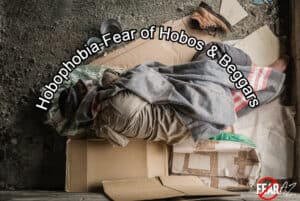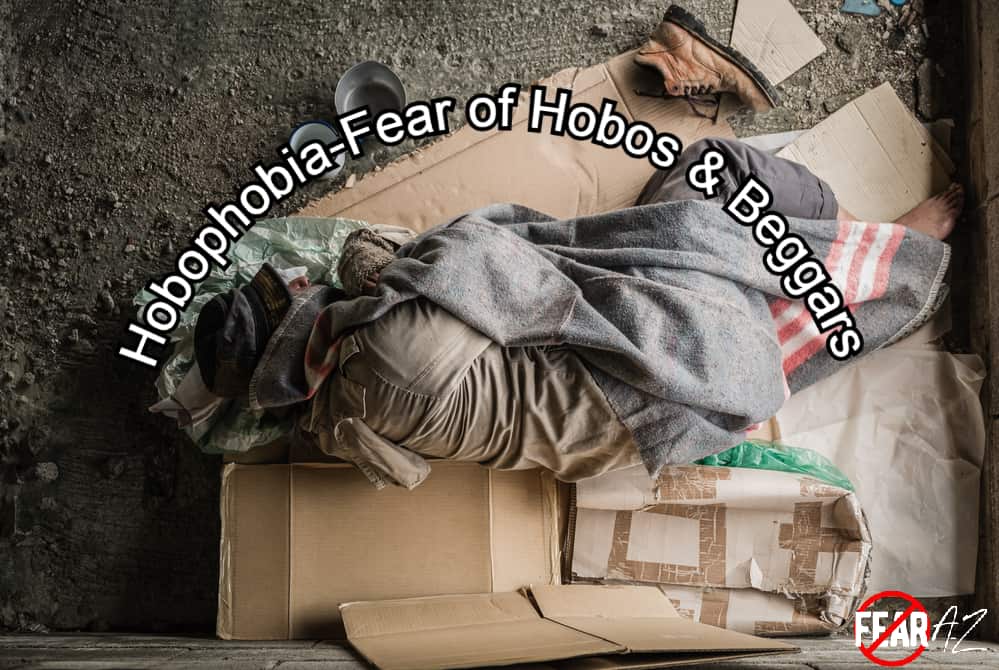Share This Article
Understanding Hobophobia: Fear of Beggars and Hobos
Do you often find yourself changing your route to avoid encounters with beggars and homeless individuals? Does the thought of being near them make you feel uneasy or overwhelmed with fear? If so, you might be experiencing hobophobia, an unusual but real fear of beggars, hobos, or even homeless people. This fear not only disrupts your daily life but also separates you from opportunities to connect with others in your community.
What Is Hobophobia?
Hobophobia is an irrational fear of hobos, beggars, or homeless people. Hobophobia, like all phobias, is rooted in a combination of factors, including genetics, environmental influences, and past experiences. While genetics can increase the likelihood of developing an irrational fear, it doesn’t determine whether you will have hobophobia. If you have a family history of mental illnesses, you may be more susceptible to developing phobias, anxiety disorders, or other mental health issues. Traumatic events or distressing encounters with beggars and hobos may also contribute to the development of hobophobia.
In some cases, hobophobia may overlap with other common fears, such as social anxiety or a fear of crowded spaces, as individuals may have learned to associate beggars and hobos with discomfort or danger. Similar to how news reports of tragic events in theaters can contribute to theatrophobia, hobophobia may be influenced by media coverage or personal experiences related to homelessness and panhandling. To better understand the causes behind your fear and find ways to address it, consider seeking support and treatment if needed. Overcoming hobophobia can lead to a more compassionate and inclusive outlook, allowing you to engage with your community more freely.
Possible Causes of Hobophobia
The fear of beggars, hobos, and homeless people can have underlying causes that contribute to its development. These causes often stem from a combination of genetic predispositions, environmental factors, and personal experiences. While genetics alone do not determine whether someone will develop hobophobia, having a family history of mental illnesses can increase the likelihood of developing various anxiety disorders and phobias. This genetic predisposition might make some individuals more susceptible to fear-related issues.
Environmental influences can also play a significant role in the development of hobophobia. Exposure to traumatic or distressing events related to homelessness, such as personal encounters with aggressive beggars or witnessing disturbing incidents involving homeless individuals, can contribute to the development of this fear. Also, media coverage portraying homeless people in a negative light or sensationalizing incidents involving them can further reinforce these fears. Additionally, if someone close, like a family member or friend, has experienced or exhibited hobophobic tendencies, individuals may learn this fear through observation and mimicry. Understanding the root causes of hobophobia is the first step in addressing and overcoming this fear, helping individuals develop more compassionate and empathetic perspectives toward those less fortunate in society.

Symptoms of Hobophobia
Have you ever wondered what it’s like to have a fear of beggars and hobos? More importantly, how can you recognize this fear, known as hobophobia? Here are some common signs and symptoms of hobophobia that can help you identify it:
Physical Symptoms
- Sweating
- Rapid breathing
- Irregular heartbeat
- Muscle tension
- Shaking or trembling
- Nausea
- Headaches and dizziness
- Flushing or chills
- Dry mouth
- High blood pressure
Mental/Emotional Symptoms
- Anxiety when thinking about beggars or being near them
- Feeling vulnerable or unsafe around beggars
- Struggling to cope with fear
- Avoiding areas where beggars might be
- Experiencing panic attacks
- Feeling disconnected from reality
- Irritability, anger, and mood swings
- Difficulty concentrating
The severity of these symptoms may vary from person to person. If you or someone you know is experiencing these symptoms due to hobophobia, it’s important to address them rather than avoiding the issue.
Possible Treatments for Hobophobia
Self-Help
Taking steps on your own to manage hobophobia can be an important part of your treatment. Consider these self-help strategies:
- Exercise – Engaging in aerobic exercises can release feel-good chemicals in your brain, reducing anxiety and promoting a sense of well-being.
- Meditation – Practicing meditation can help you focus on something other than your fear and bring a sense of calm.
- Yoga – Certain yoga poses can calm the mind, improve flexibility, and enhance strength, which can be particularly helpful for anxiety and phobias.
- Limiting Caffeine – Reducing caffeine intake can help decrease anxiety symptoms.
Professional Help
Seek support from mental health professionals for more structured treatments.
- Cognitive Behavioral Therapy (CBT) – This type of therapy helps you identify and change negative thought patterns associated with your fear, providing coping mechanisms.
- Exposure Therapy – Gradual exposure to the source of your fear, under professional guidance, can help desensitize you to triggers.
- Dialectical Behavior Therapy (DBT) – Useful for emotional regulation, DBT involves examining how you handle conflicting emotions and teaches coping strategies.
- Mindfulness-Based Stress Reduction (MBSR) – Involving meditation techniques, MBSR helps relieve anxiety and stress related to fears.
- Medication – Anti-anxiety medications may be prescribed alongside other treatments if anxiety is hindering recovery.
Learning to Cope
Recovery from hobophobia can be a complex journey. Therapy provides guidance, self-help strategies maintain your progress, and confiding in loved ones or support groups offers essential emotional support. Over time, you can become better equipped to manage your fear, its triggers, and its symptoms.
Remember that seeking help and taking steps to confront hobophobia can lead to a more inclusive and compassionate perspective, allowing you to engage with your community more comfortably.
In Conclusion
Figuring out hobophobia causes, looking out for symptoms, and seeking help are necessary steps to take in your journey toward freedom from your fears. These steps may include self-help or, if needed, professional help.
We hope the information you’ve read here will help you find your way to a life free of anxiety and fear. One day, you may be able to enjoy your travels or trips to the city without feeling anxious about who you might run into on the corner.



